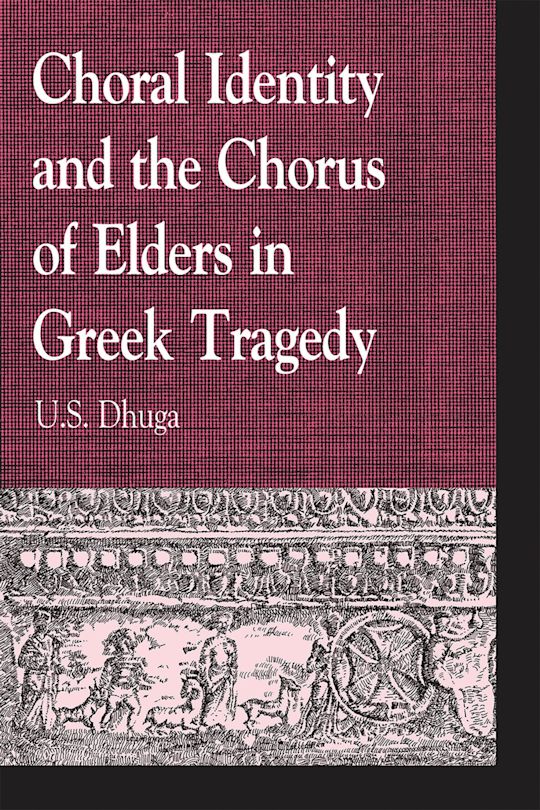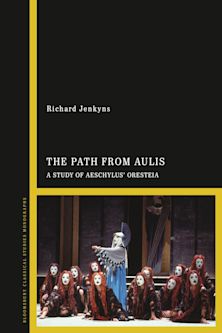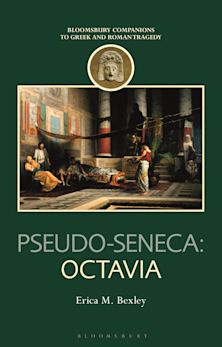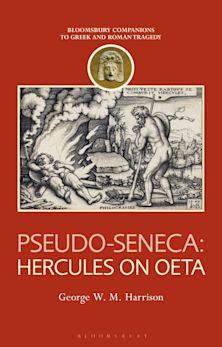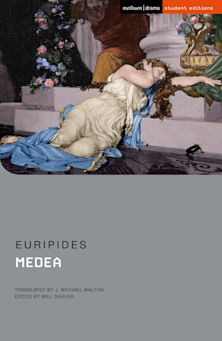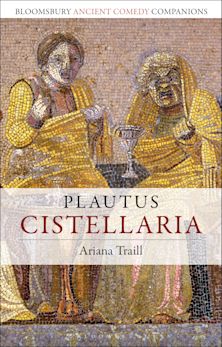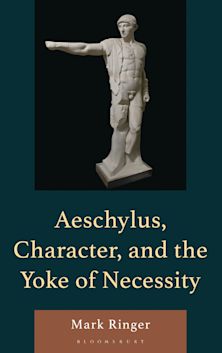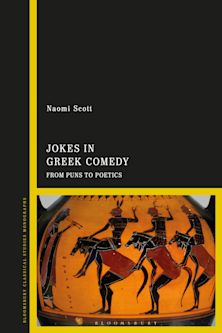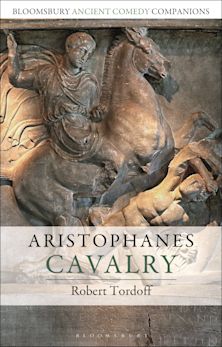- Home
- ACADEMIC
- Classical Studies
- Ancient Drama
- Choral Identity and the Chorus of Elders in Greek Tragedy
Choral Identity and the Chorus of Elders in Greek Tragedy
This product is usually dispatched within 1 week
- Delivery and returns info
-
Free CA delivery on orders $40 or over
You must sign in to add this item to your wishlist. Please sign in or create an account
Description
Debate concerning the extent to which the tragic chorus is marginal to the dramatic action has prevailed in discussions of choral identity and, more broadly, Greek tragedy as a whole, since the time of Aristotle. Furthermore, it is supposed that choruses not tied to the role of Athenian military-age men are all the more marginal. Yet choral identity challenges our understanding of the ancient Greek tragic chorus-and thus of Greek tragedy as a whole-because the dramatic identities of tragic choruses are, with few exceptions, so different from the identities of the plays' external audiences.
Choral Identity and the Chorus of Elders in Greek Tragedy presents U.S. Dhuga's radical reappraisal of the ancient Greek tragic chorus. Through a close reading of the speech, song, and choreography among choruses of old men, Dhuga overturns previous assumptions about the chorus of elders, arguing that their decrepitude and supposed low social rank resulted in the historically dismissive view of the chorus of elders.
This book demonstrates that choruses of elders are instead remarkably central to the tragic action. Dhuga guides us through detailed yet readable analyses of the choruses in Sophocles' Oedipus Coloneus and Antigone, Euripides' Heraclidae and Hercules Furens, and Aeschylus' Agamemnon. Through these works, Dhuga broadens our understanding of the ongoing, if not increasing, importance that the chorus commands in Greek tragedy. Choral Identity and the Chorus of Elders in Greek Tragedy is a must-read for anyone who wants a more complete understanding of the power and complexity of Greek tragedy.
Table of Contents
Chapter 2 Chapter One. Choral Identity in Sophocles' Oedipus Coloneus
Chapter 3 Chapter Two. Choral Identity in Euripides' Heraclidae
Chapter 4 Chapter Three. Choral Identity in Euripides' Hercules Furens and Aeschylus' Agamemnon
Chapter 5 Chapter Four. Choral Identity in Sophocles' Antigone
Product details
| Published | Dec 18 2010 |
|---|---|
| Format | Hardback |
| Edition | 1st |
| Extent | 200 |
| ISBN | 9780739147306 |
| Imprint | Lexington Books |
| Dimensions | 240 x 162 mm |
| Series | Greek Studies: Interdisciplinary Approaches |
| Publisher | Bloomsbury Publishing |
About the contributors
Reviews
-
In this provocative study, Dhuga challenges received views of the role of choruses of Elders in Greek tragedy and illuminates the way that political context and the relation between ruler and subject defines their surprisingly varied identities.
Helene Foley, Barnard College, Columbia University
-
The identity and role of the chorus is one of the central topics in contemporary study of Greek tragedy, and this book makes an important and original contribution to the debate. Dhuga challenges the widely-held view that choruses are socially marginal and excluded from political power. He focuses on choruses of old men and argues convincingly that they are not necessarily marginal because they are old. He offers thoughtful and sensitive analyses of five plays, with many new insights. The book is both scholarly and well-written, with helpful summaries at the end of each chapter and a clear overall argument.
Michael Lloyd, University College Dublin









